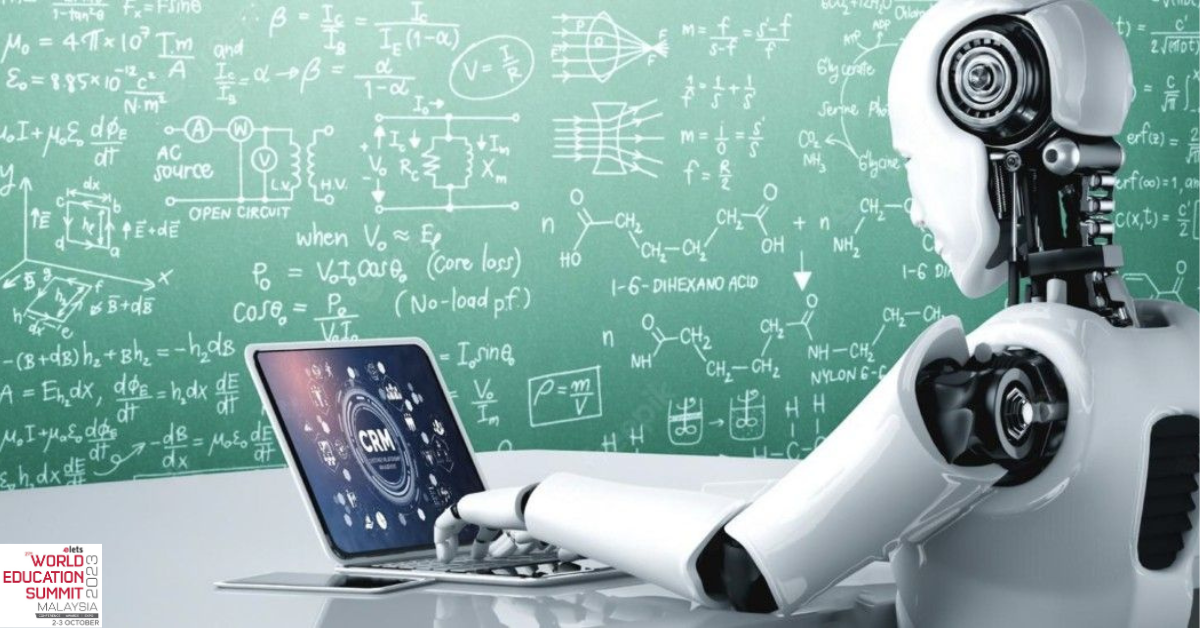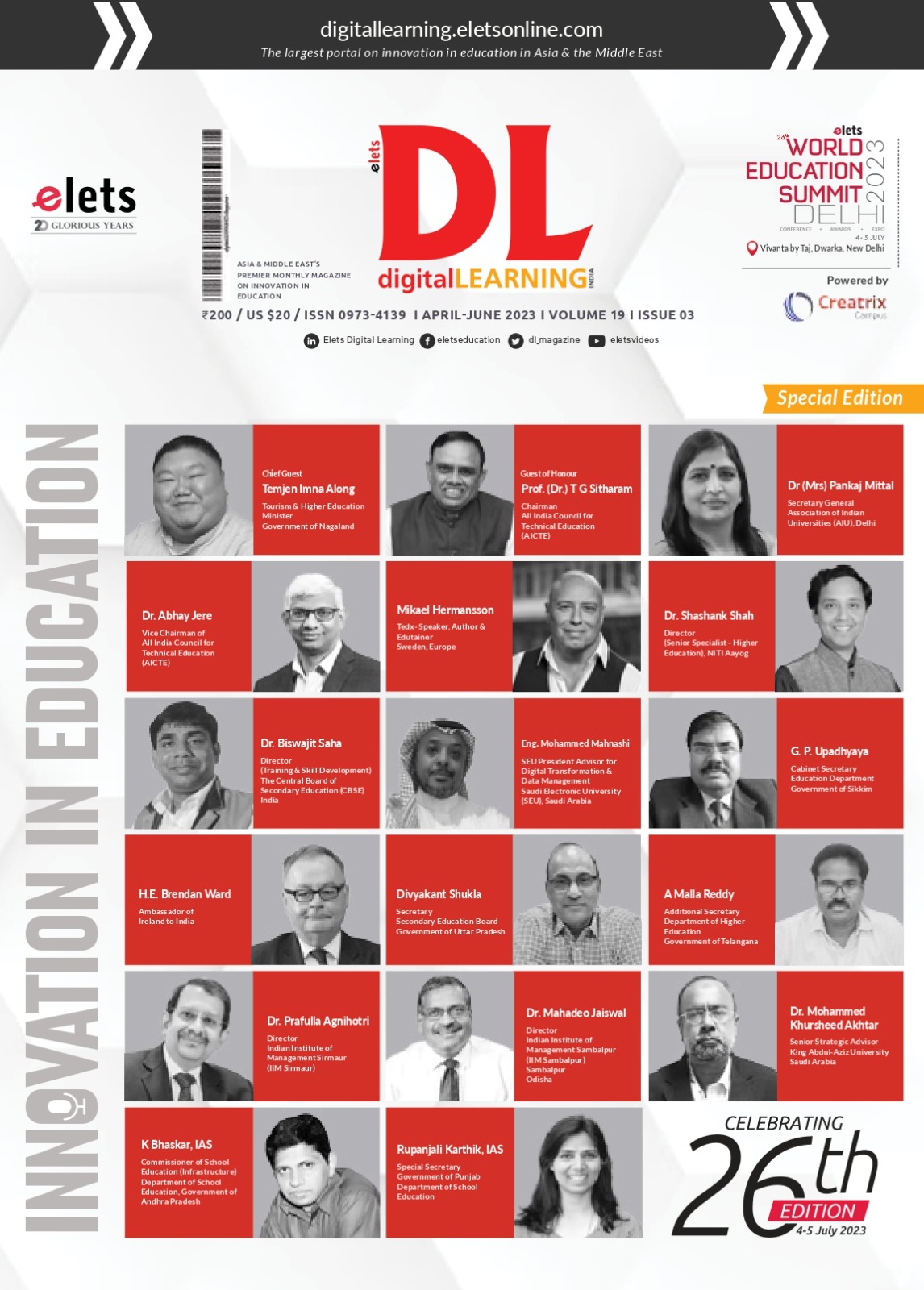
Noteworthy AI Trends in Education and Workforce for 2023
By Elets Technomedia
In the rapidly evolving landscape of technology, few forces have proven as transformative as Artificial Intelligence (AI). From reshaping industries to redefining everyday tasks, AI’s influence is pervasive. In 2023, AI has moved beyond the theoretical realm and firmly established itself as a practical tool, especially in the realms of education and the workforce. As AI integration becomes more tangible, its impact on learning, teaching, and work is undeniable.
The market for AI in education is swiftly emerging within the EdTech sector. According to a Market.us report, the worldwide valuation of the AI in Education market was $2.48 billion in 2022, with a projected surge to an astonishing $53.68 billion by 2032. This growth is anticipated to be driven by a remarkable compound annual growth rate (CAGR) of 36.0% over the specified forecast duration.
Here, we delve into the AI trends that are leaving an indelible mark on education and the workforce in 2023.
1. Mainstream Adoption of AI in Education
While discussions about AI’s potential in education have been ongoing for years, 2023 marks a turning point as AI adoption becomes mainstream. From K-12 institutions to adult learning platforms, educators and learners are now leveraging AI in unprecedented ways. The proliferation of platforms like ChatGPT has democratized access to AI-powered assistance, offering students personalised support and expanding the reach of educators.
2. Personalised Learning Journeys
AI’s ability to analyse individual learning patterns and preferences is catalysing the era of personalised education. In 2023, AI algorithms are being used to assess students’ strengths and weaknesses, tailoring lesson plans to cater to their unique needs. This ensures that each student progresses at their optimal pace, enhancing engagement and overall outcomes. From adaptive quizzes to AI-driven content recommendations, personalized learning is revolutionising traditional classroom dynamics.
3. Enhanced Teacher Support
AI isn’t replacing teachers; rather, it’s becoming an invaluable ally. Educators are benefiting from AI-powered tools that assist with administrative tasks, such as grading assignments and generating reports. This allows teachers to focus more on crafting enriching learning experiences and providing one-on-one guidance to students. Additionally, AI-driven insights help identify areas where students might be struggling, enabling timely interventions.
4. Skill-centric Education for the Workforce
In the dynamic landscape of the workforce, the skills demanded are constantly evolving. AI is reshaping the way we approach skill development. Through sophisticated data analysis, AI identifies industry trends and predicts future skill requirements. This information guides educational institutions and training programs to offer courses that are aligned with the needs of the job market, ensuring that graduates are well-prepared for the challenges of the modern workforce.
5. Lifelong Learning and Reskilling
As AI and automation change the nature of jobs, the concept of lifelong learning becomes imperative. Workers are recognising the need to continuously upskill and reskill to remain relevant. AI-powered platforms are catering to this demand by providing accessible and flexible learning opportunities. Whether professionals are looking to pivot their careers or acquire supplementary skills, AI-driven platforms offer tailored content and micro-credentials to support their journey.
6. Data-Driven Decision-Making in Education
Educational institutions are turning to AI to harness the power of data for informed decision-making. AI-driven analytics enable educators and administrators to gain insights into student performance, resource allocation, and curriculum effectiveness. These insights facilitate evidence-based adjustments that enhance the overall learning experience and help institutions stay responsive to changing needs.
7. Ethical Considerations and Bias Mitigation
As AI becomes more embedded in education and the workforce, the importance of ethical considerations and bias mitigation cannot be overstated. Ensuring that AI algorithms are fair, unbiased, and transparent is crucial to prevent perpetuating existing inequalities. In 2023, there is a growing emphasis on addressing bias in AI systems, both in educational content and in algorithms used for hiring and talent management.
The year 2023 signifies a milestone in the integration of AI in education and the workforce. What once seemed like a distant future is now a tangible reality, transforming the way we learn, teach, and work. The mainstream adoption of AI tools, personalised learning journeys, and the reshaping of skill development are just a few examples of the seismic shifts occurring. However, as we forge ahead, it’s imperative to strike a balance between AI’s capabilities and ethical considerations, ensuring that the technology enriches education and empowers the workforce without compromising on fairness and inclusivity.
Join 27th Elets World Education Summit for Learning and Networking
We are excited to invite you to the prestigious 27th Elets World Education Summit, Asia’s premier education event that brings together education leaders, thought leaders, and industry experts from around the globe. This education summit offers a unique opportunity to immerse yourself in the latest trends and innovations shaping the education landscape while fostering invaluable networking connections.
For details, visit: wes.eletsonline.com

